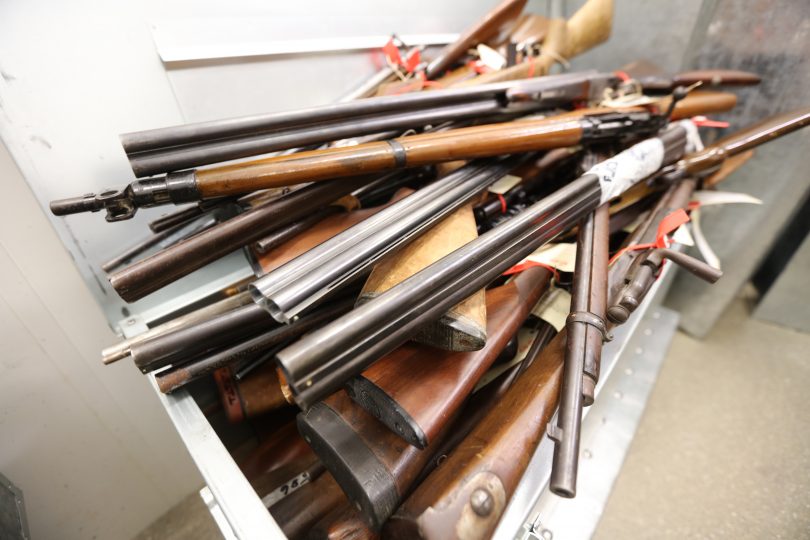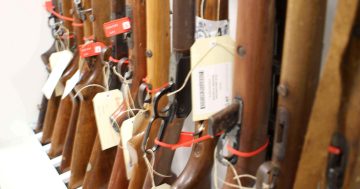
A national firearms register will be funded in the federal budget. Photo: ACT Policing.
A national firearms register will be funded in the federal budget, finally making good on a national agreement made when John Howard was prime minister.
It will allow police to access near real-time information on firearms and their owners.
Attorney-General Mark Dreyfus described the development as a “historic funding commitment” and said the register will be a “signature community and police safety initiative”.
The government will commit to a $161.3 million investment over four years to establish the register and support overhauling Commonwealth, state and territory firearms management systems.
First proposed after the 1996 Port Arthur Massacre that killed 35 people, the register’s development stalled until two police officers and a community member were shot dead in Wieambilla, Queensland, in 2022.
One of the shooters had a suspended gun licence yet was still able to legally purchase ammunition.
Queensland Police could not access information about the perpetrator’s NSW firearms licence at the time.
In response, National Cabinet agreed in December last year to resurrect and actually implement a national firearms register, almost three decades after an initial agreement to do so.
The register will be a federated model, drawing information from existing firearms registries, portals and management systems.
According to the Attorney-General’s Department: “This will enable a national, near real-time view on firearms and associated risks.”
The register will be implemented and fully operational in four years.
“This timeframe reflects the legislative, policy, data and technical improvements required to make the register fit for purpose and deliver on its law enforcement and community safety objectives,” the department’s information states.
“All states and territories and relevant Australian Government agencies will need to perform extensive improvements to existing registries, portals and management systems.”
These reforms will include significant data remediation updates to meet a common national data standard.
Existing registries will be upgraded, replacing paper-based systems; portals for dealers, importers and manufacturers will be digitised; and each individual system will be connected to the register.
Changes to information processing will be made to ensure information is provided in near real-time.
“The tragic events at Wieambilla in December 2022 were a catalyst for progressing this outstanding reform from the 1996 Port Arthur massacre response,” Mr Dreyfus said.
“Once established, police will know where firearms are, who owns them, and what other risks to the community and police may exist.”
The National Firearms Register will link firearms information with other relevant police and government information, including information from the National Criminal Intelligence System.
The development of the register is being informed by community and stakeholder consultation. It is being led by the A-G’s department and the Australian Criminal Intelligence Commission, all working alongside state and territory governments.
Gun control advocates have welcomed the announcement, while shooters’ groups have more cautiously expressed support.
Founding patron of the Alannah & Madeline Foundation, Walter Mikac, who lost his family at Port Arthur, said the registry was the culmination of almost three decades of advocacy.
“It’s bittersweet,” he said in a statement.
“I would have liked that to have been instigated way back when John Howard introduced the National Firearms Agreement back in 1996.
“We’ve had to-ing and fro-ing from a number of the states over the years, mainly about watering down.
“We acted so quickly to make the initial reforms. As time passes, people’s memories, the events fade, the absolute despair and shock of the whole nation of that time disperses over the years and people become a little bit more complacent.”
Sporting Shooters’ Association of Australia media and politics officer Rachael Oxborrow highlighted privacy concerns over the incoming register.
“Law-abiding firearms owners are some of the most heavily policed people in the country,” she said.
“Now, if personal information on firearms is available on a database, there could be leaks and that would be a public safety risk if used in the wrong way.
“The intentions of this register are great, and we can only hope the system itself becomes an integral part of how our police operate so they’re using it as intended.
“Firearms registries have been around since 1996 and are all in varying degrees of integration, so hopefully, this register will pull them together and update them at the same time.”













